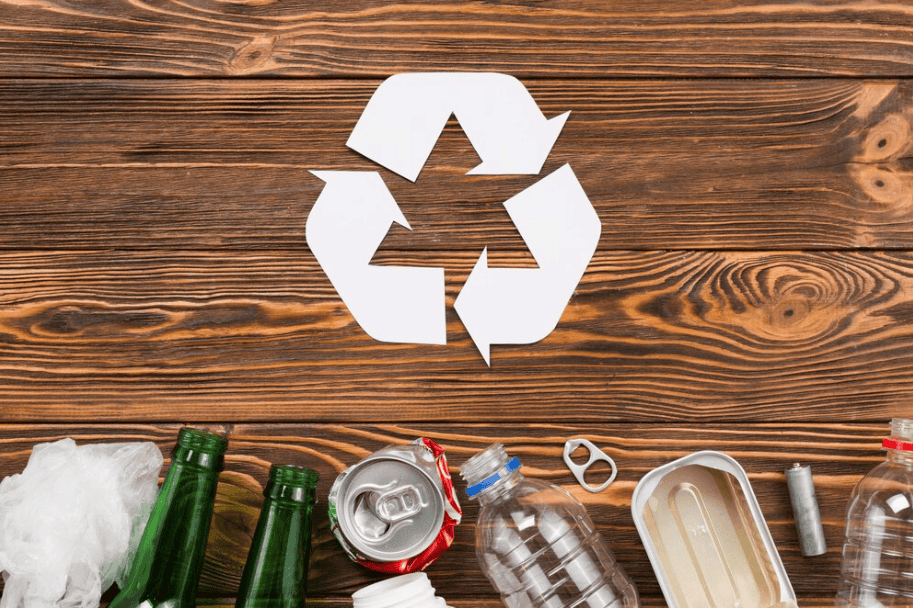The Road To A Sustainable Future Through Recycling And Waste Management.
In today's world, the challenge of managing waste efficiently is more pressing than ever. Recycling and waste management are crucial components of a sustainable future, offering solutions to the growing environmental concerns posed by the increasing amounts of waste generated by human activity. By understanding and implementing effective Recycling and Waste Management practices, we can reduce our environmental footprint, conserve natural resources, and pave the way for a cleaner, greener planet.

The Importance of Recycling
Recycling is the process of converting waste materials into new products, thus reducing the need for raw materials and minimizing the amount of waste sent to landfills. This practice is essential for several reasons:
-
Conservation of Resources: Recycling helps conserve valuable natural resources such as timber, water, and minerals. For example, recycling paper reduces the need for deforestation, and recycling metals reduces the need for mining new ores.
-
Energy Savings: Recycling materials often require less energy than producing new products from raw materials. For instance, recycling aluminum saves up to 95% of the energy required to make the same amount of aluminum from raw materials.
-
Reduction in Greenhouse Gas Emissions: By conserving energy and reducing the need for raw material extraction, recycling also helps lower greenhouse gas emissions. This is crucial in the fight against climate change, as it reduces the carbon footprint associated with manufacturing and waste disposal.
-
Reduction of Waste in Landfills: Landfills are not only unsightly but also contribute to soil and water pollution. Recycling reduces the volume of waste sent to landfills, thereby mitigating these environmental hazards and extending the lifespan of landfill sites.
-
Economic Benefits: Recycling can also have economic advantages. It creates jobs in the recycling and manufacturing industries, and recycled materials are often cheaper to produce than new ones. Additionally, selling recycled materials can generate revenue for communities.
The Role of Waste Management
Waste management encompasses all activities related to the handling, processing, and disposal of waste materials. Effective waste management is crucial to maintaining public health, protecting the environment, and ensuring that waste is disposed of in a safe and sustainable manner.
-
Waste Collection and Sorting: The first step in waste management is the collection and sorting of waste. Proper segregation of waste at the source—such as separating recyclables, compostable materials, and hazardous waste—is essential for efficient recycling and disposal.
-
Recycling and Reprocessing: Once waste is sorted, recyclable materials are sent to recycling facilities where they are cleaned, processed, and transformed into new products. This step is critical in reducing the amount of waste that ends up in landfills and incinerators.
-
Composting: Organic waste, such as food scraps and yard waste, can be composted to create nutrient-rich soil that can be used in gardening and agriculture. Composting not only reduces the volume of waste but also returns valuable nutrients to the earth.
-
Waste-to-Energy: Some waste that cannot be recycled can be converted into energy through processes such as incineration or anaerobic digestion. Waste-to-energy technologies provide a way to extract value from waste that would otherwise be discarded, while also reducing the need for landfill space.
-
Safe Disposal of Hazardous Waste: Hazardous waste, including chemicals, batteries, and electronic waste, requires special handling and disposal to prevent harm to human health and the environment. Proper waste management ensures that these materials are disposed of safely and responsibly.
Challenges and Solutions
While recycling and waste management offer numerous benefits, they also face challenges. Contamination of recyclable materials, inadequate infrastructure, and public awareness are some of the obstacles that hinder effective waste management. However, these challenges can be addressed through education, policy changes, and investment in recycling facilities and technologies.
Public awareness campaigns can encourage individuals to recycle correctly and reduce waste. Governments can implement policies that incentivize recycling and penalize improper waste disposal. Additionally, advancements in recycling technologies can improve the efficiency and effectiveness of waste management systems.
Conclusion
Recycling and Waste Management are essential for a sustainable future. By reducing the amount of waste we produce, conserving resources, and minimizing our environmental impact, we can create a healthier planet for future generations. Embracing responsible waste management practices is not just a choice; it is a necessity for a sustainable world.


Comments
Post a Comment